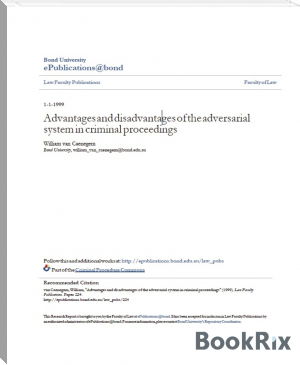Critical Analysis: Islamic Legal Interpretation, Muftis and Their Fatwas - Sehrish Saba, Nusrat Azeema (best fiction books to read txt) 📗

- Author: Sehrish Saba, Nusrat Azeema
Book online «Critical Analysis: Islamic Legal Interpretation, Muftis and Their Fatwas - Sehrish Saba, Nusrat Azeema (best fiction books to read txt) 📗». Author Sehrish Saba, Nusrat Azeema
The fatwa discussed here is related to query whether Muslim had a right to act independently of the state to redress the insult to Islam that they felt the hanumangarhi represented. The answer to this query is given in the form of fatwa by a shi’a jurist that without the participation of ruler either he is customary law rule or Islamic law ruler such actions are not permissible. The writer thoroughly discussed all the social and political context of the issue along with difference of opinion in sunni and shi’a thought towards the controversy.
Two Fatwas on Hajj in British India
This chapter explains about two fatwas on hajj in British India. The writer took two fatwas issued in the late nineteenth century by the maulana Rashid Ahmed, the mufti on the questions posed by Azizuddin, the questioner, related to hajj. The writer under different headings like subject, rhetoric and sources, institutional context and dissemination elaborated the topic and in the end mentioned in his conclusion that these fatwas are broadening the issues not only of religious obligations but also of moral opinion regarding a wide range of customary practices, relevant to the attempt of the ulama to define a purified and authoritative personal standard of faith and practice as the foundation of individual and communal life.
Apostasy And Judicial Separation In British India
Subject of apostasy and judicial separation in British India is discussed in this chapter. The writer discussed two fatwas related to the issue of apostasy and its effect on the relationship of a Muslim spouse. The questioner (musta’fi) approached mawlana Ashraf Ali Thanawi for the fatwa on the issue. The writer elaborated the issue by giving the translation to the fatwa given by mawlana Ashraf Ali Thanawi, presenting the background to the issue in British India, institutional development of this institution there, providing with the doctrinal context of the issue and then finally in his conclusion he analyzed the reasoning due to which mawlana Thanawi adopted the aspects of Maliki Legal doctrine and amended the view presented by Hanafi’s that apostasy annuls the marriage contract in favour of judicial divorce.
The writer through these fatwas suggested that legal reform is acceptable in Islamic law even if it is legislated by a non-Muslim government if a semblance of continuity with the past is maintained and if it is initiated through the institution of ifta’.
Are Wahhabis Kafirs? Ahmad Riaz Khan Barelwi and His Sword of the Haramayn
Chapter seventeen is related to the topic of uniqueness of Prophet (s.a.w.) and love to him (s.a.w.) which is inseparable from the worship of Allah (SWT) and those who contradict this view are infidel (kafir). The chapter is named as “Are wahhabis kafir? Ahmed riaz khan beralwi and his sword of haramayn.
In 1902-03 Ahmed Riaz Khan Beralwi wrote a treatise in which he issued the judgment of infidelity (kufr) on certain contemporary South Asian Muslim Scholars of Islamic law. In 1906, when he went to Haramayn on his second hajj, he submitted his work there before some ulama’ with request to write testimonials (tasdiqat) in support of his verdict of infidelity (kufr). After his return to subcontinent his verdict and testimonials received from the Haramayn were published as a fatwa entitled Husam al- Haramayn ala Munhar al- kufr wa’l Mayn (the sword of the Haramayn at the throat of Kufr and falsehood).
The writer through the headings of Ulama’ Responses to British Rule in the late nineteenth century, the Ahl-i Sunnat movement and its use of the term Wahhabi, the context of writing of Husam al-Haramayn and Rhetoric and style of argumentation in Husam al- Harmayn, presented and elaborated the full context of the fatwa taken from the work of Ahmed Riza Khan Barelwi. The writer concluded after thoroughly discussing the history and context of the fatwa the Ahmed Riza Khan considers it the duty of ulama’ to condemn the practices of those who act against the fundamentals of faith and to declare them as kafir.
The Lions Of Qasr al- Nil Bridge: The Islamic Prohibition Of Images as an Issue in the ‘Urabi Revolt
This chapter is about the lions of qasr al- nil bridge: the Islamic prohibition of images as an issue in the urabi revolt. The fatwa taken by the writer here for analysis and interpretation is part of collection of some 13,500 fatwas issued by Grand Mufti Muhammad al- Abbasi al- Mahdi of Egypt. Although the issues discussed in fatwa seems to deal with purely religious question- namely the obligation to remove images of human beings and animals- but the context in which it was requested to be issued was of highly political nature.
The writer very briefly elaborated the function of the institution of ifta’ along with powers and authorities the Grand mufti and muftis of that era enjoys, their status and importance attached to their fatwas.
The query (mas’ala) presented in the chapter is situated in the context of Urabi Revolt, 1881 in Egypt. Urabi apparently wanted to make a public gesture showing his Islamic zeal. This gesture took shape of an attack on some statue placed in Cairo. The demolition of this and some other statutes was a symbolic act that carried both religious and political implications. To show that to destroy these statues is not only agreed by all the schools of thought but also an obligation of a religion on a Muslim ruler, Urabi, asked for a fatwa by a Grand mufti.
The grand mufti replied that such images and statues are almost forbidden and removal of the same legally obligatory. Similarly, it is ruled out that images located at both ends of Qasr al-Nil Bridge should be removed. But interestingly and differing from the fatwas of the era, the Grand mufti wrote a supplement to the answer in which he presented his political views to clarify the Urabi, that Grand mufti did not want him to increase his legitimacy by posing as a Muslim ruler, who is carrying out the commands of Islam faithfully. The Grand mufti pointed out number of political and social evils which a Muslim ruler must strive to eradicate from his Egypt and which needed urgent consideration.
An Argument about How to Argue
This chapter is the start of fourth part of the book i-e the modern period. It is dealing with a very interesting topic of an argument about how to argue. Although the fatwa included in the chapter is regarding the keeping of dog, cleanliness and uncleanliness of their saliva etc but the query (mas’ala) sought for fatwa is dealing with more than one kind of issue.
The fatwa in the chapter came from Kelantan, Malysia in the mid- 1930s.The writer elaborated the history, historical development and establishment of the institution of ifta’ in Kelantan, Malaysia. The chapter includes the details of majlis muzakara, took place in the audience hall of one of the royal palaces of Kelantan on the issue of keeping dogs etc. which was ended inconclusively upon which the request for issuance of fatwa was made to clarify the matter. The writer opines that this entire episode made him to conclude that this was an argument about how to argue.
The Council Of Indonesian ‘Ulama’ On Muslims’ Attendance at Christmas Celebrations
Chapter twenty is related to the topic of “the council of Indonesian ‘ulama





Comments (0)